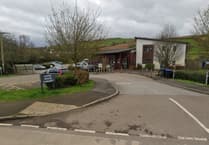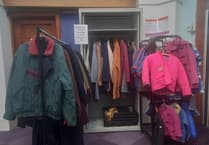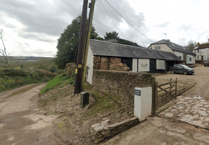STROKE care and research colleagues at Somerset NHS Foundation Trust have teamed up to test a pioneering new nerve stimulation therapy, in a bid to improve hand and arm weakness in stroke survivors.
The new stroke treatment delivers electrical pulses to a patient’s brain via a portable, pacemaker-like device, at the same time rehabilitation therapy is being carried out.
In Somerset, stroke clinicians are actively recruiting patients to take part in the trial which is called TRanscutaneous lImb reCovEry Post-Stroke (or simply TRICEPS for short). It is expected to be the first of its kind to check whether a treatment known as transcutaneous (through the skin) vagus nerve stimulation (TVNS) can improve hand and arm weakness in stroke survivors.
Researchers hope that the portable stimulation device will allow the revolutionary treatment to be provided to larger numbers of stroke patients, at cost and at scale.
Janet Schmitt, Somerset NHS Foundation Trust’s allied health professional consultant stroke practitioner, and the trust’s principal investigator for TRICEPS, said: “Around 110,000 people suffer with a stroke in the UK every year and one third of stroke survivors are left with permanent arm weakness, which can make daily activities difficult.
“Rehabilitation therapy is the main treatment for people recovering from a stroke, but the benefits are modest, and many stroke survivors have persisting arm weakness, limiting their ability to self-care, which in turn creates pressure on the NHS and social care.
“The TRICEPS trial will build on the results of a recent clinical trial, which showed that, when combined with therapy, stimulating damaged areas of the brain using TVNS improved arm recovery in stroke survivors to a greater degree than if only therapy alone was provided.”
To find out more about the trial contact [email protected].





Comments
This article has no comments yet. Be the first to leave a comment.